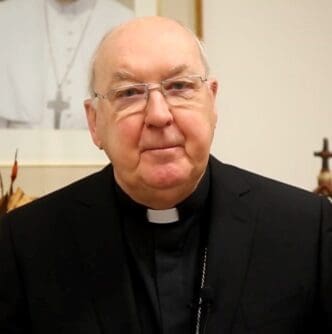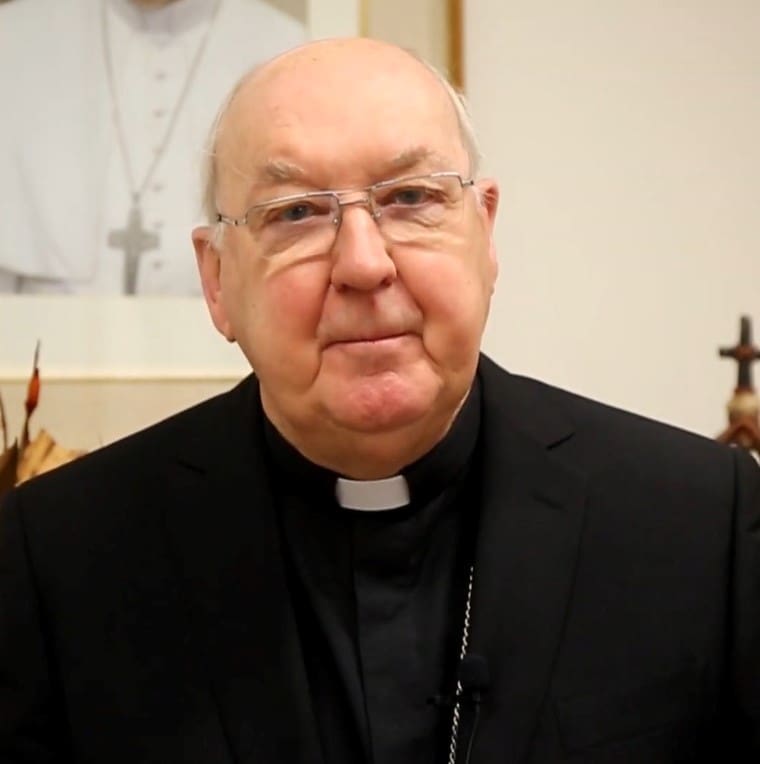Cardinal Kevin Farrell recalls the unexpected day when Pope Francis requested him to become the camerlengo, the Vatican official responsible for overseeing the Holy See after a pope’s passing and during the election of a new one. The conversation took place on a flight back to Rome from the 2019 World Youth Day in Panama. At the time, Farrell had only been in Rome for a few years, having been called from his role as Bishop of Dallas, Texas, to reorganize the Vatican’s laity office, a critical element of Francis’s reforms.
Years later, Francisco entrusted Farrell with another significant role filled with both myth and real-world responsibilities: managing the Vatican during the often tumultuous “interregnum” between papacies and organizing the conclave to elect the next pontiff. Farrell humorously mentioned that he accepted the position on the condition that Francis would preach at his funeral, implying he hoped to die before the Pope, thus never needing to act as camerlengo. This sentiment reflected Farrell’s reluctance to assume such vast responsibilities and his deep respect for Pope Francis, who he credits with steering the Catholic Church towards a path of renewal and inclusivity.
With Pope Francis’s passing, Farrell is now at the forefront, expected to hold this role until a new pope is chosen. The camerlengo’s duties involve administering the Holy See’s assets between papacies. This includes securing written reports on current assets, obtaining the current and projected budgets, and gathering any relevant economic information for the cardinals and future pope. Ceremonial duties involve certifying the pope’s death, sealing the papal apartment, and breaking the Fisherman’s Ring.
Farrell, an Irish-American, emphasized the significance of these financial responsibilities, which align with his qualifications. He already leads major Vatican committees on finance, investments, and confidential matters, and presides over its supreme court, making him particularly equipped to provide a financial prospectus for the new pope.
Born in Dublin, Ireland, on September 2, 1947, Farrell joined the religious order of the Legionaries of Christ in 1966 and was ordained as a priest in 1978. He left six years later, before the order’s founder was revealed to be a sexual abuser, and became a diocesan priest in the Archdiocese of Washington. Farrell increasingly managed the archdiocese’s finances, demonstrating a strong financial acumen despite not completing a graduate degree.
In 2001, Farrell became an auxiliary bishop of Washington, serving under the now-disgraced former Cardinal Theodore McCarrick. In 2007, he was appointed Bishop of Dallas. Farrell has consistently stated that he was unaware of McCarrick’s abuses during his time in Washington. Farrell was content in Dallas when, in May 2016, his secretary informed him that the pope was on the phone. Assuming it was a prank by another bishop, he answered only to hear Pope Francis speaking Spanish, a language Farrell mastered during his years in Mexico with the Legionaries.
Pope Francis requested Farrell to apply his policy of appointing qualified lay experts instead of priests in authoritative diocesan positions to the Vatican’s laity office. The Pope aimed to revamp the office by merging it with the Vatican’s departments of family and life, promoting a lay-led governance model. Despite initial hesitations, Farrell agreed to discuss the matter further with Francis. In October 2016, Farrell relocated to Rome to oversee the laity office. His arrival was quickly followed by his appointment as a cardinal, a clear indication of the Pope’s intent to entrust Farrell with significant responsibilities within the Church.











